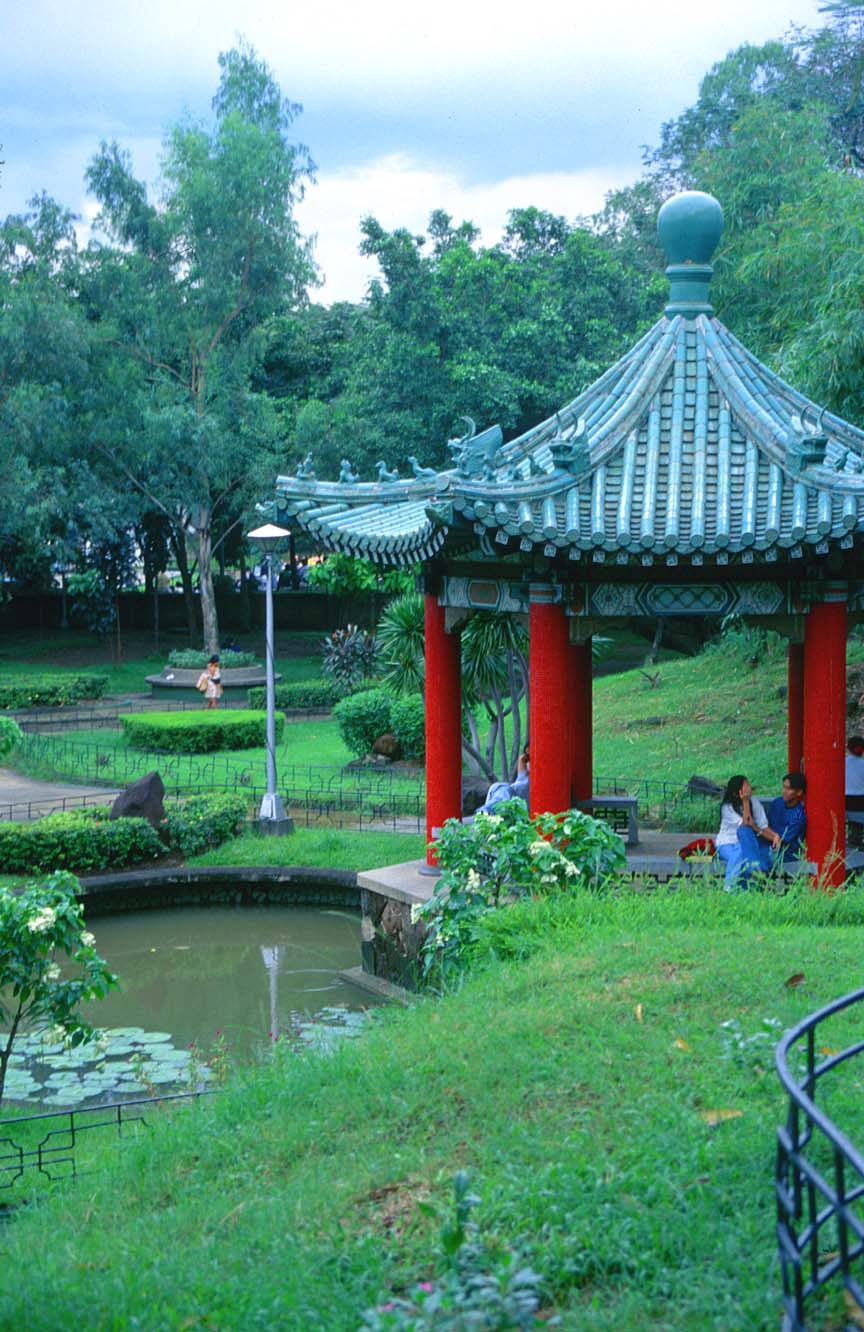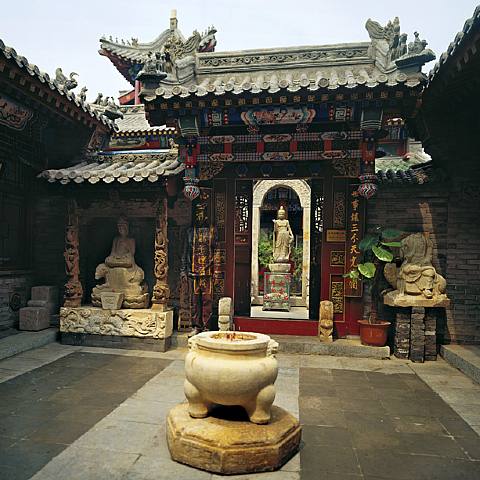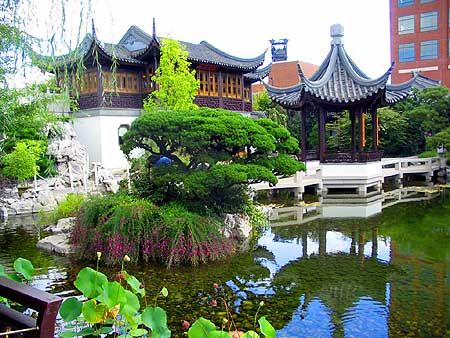




The Chinese garden expresses the relationship to nature and the idea of balance through the art of mimicking natural setting, thus the existence of mountains, rocks, water, and wind elements. Yin and Yang juxtapose complementary opposites: as hard as rock can be, the softness of water can dissolve it.
Symbolism is a key element of Chinese garden design. To the earthy tones of the Chinese garden, a touch of red or gold is often added to bring forth the Yin/Yang contrast. The colors red and gold also represent luck and wealth. Bats, dragons and other mystic creatures carved on wooden doors are also commonly found in Chinese gardens; these are signs of luck and protection. Circles portray togetherness, especially for family members, and are depicted in moon gates and round tables placed within square backgrounds. The moon gate and other whimsical doorways also act to frame views and to force the viewer to pause for a transition into a new space.
Symbolism is a key element of Chinese garden design. To the earthy tones of the Chinese garden, a touch of red or gold is often added to bring forth the Yin/Yang contrast. The colors red and gold also represent luck and wealth. Bats, dragons and other mystic creatures carved on wooden doors are also commonly found in Chinese gardens; these are signs of luck and protection. Circles portray togetherness, especially for family members, and are depicted in moon gates and round tables placed within square backgrounds. The moon gate and other whimsical doorways also act to frame views and to force the viewer to pause for a transition into a new space.


















0 comments:
Post a Comment